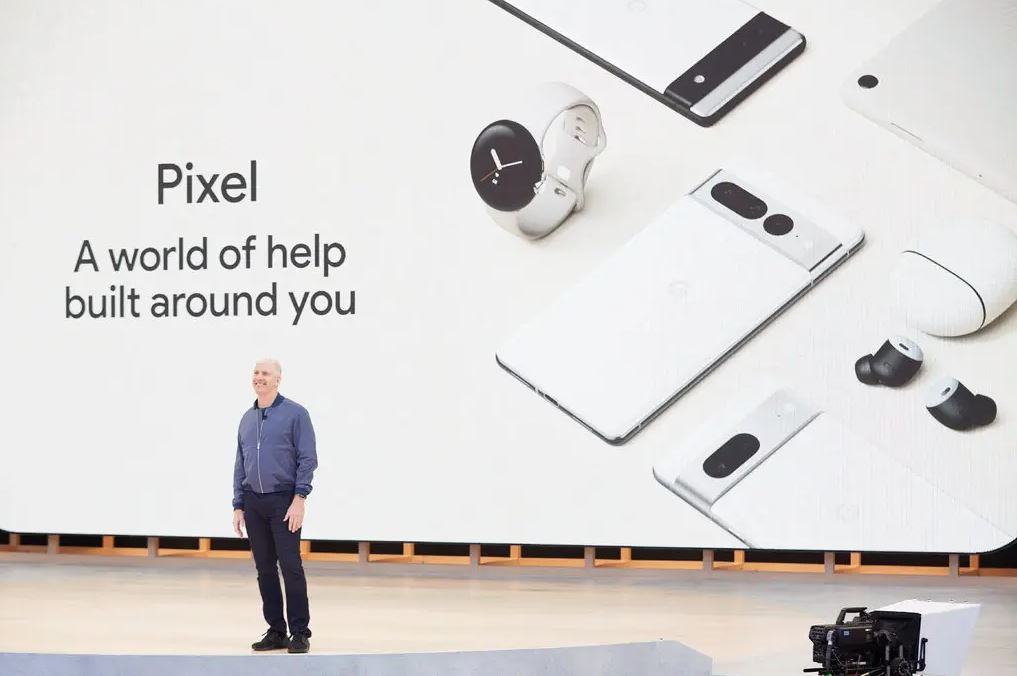There was a time when Google presented a fantastical picture of the future, replete with self-driving vehicles, augmented reality glasses, infinite storage for e-mails and photographs, and predictive text that could finish sentences that were already in progress.
On Wednesday, as Google started off its annual developer’s conference, the search engine giant presented a more low-key version of itself. The Google of 2022 is more realistic and pragmatic, like its more business-oriented counterparts at Microsoft rather than a fantasy play area for those who are passionate about technology.
And it would seem, by all indications, that this was done on purpose. The audacious goal is not entirely lost, but it will take some time to realise it. After years of pouring money into research and development, the professional executives who now oversee Google are more focused on finding ways to turn those investments into financial gain.
The largest wager placed by the corporation on artificial intelligence does not, at least not yet, suggest that science fiction will soon become reality. It entails making more nuanced adjustments to already existing items.
Google highlighted the “helping” nature of its products during a presentation that was otherwise lacking in wow moments. During two hours of keynote presentations, Google executives used the terms “help,” “helping,” or “helpful” more than 50 times. This included a marketing campaign for Google’s new hardware products with the line: “When it comes to assisting, we can’t help but help.”
The new Google Docs feature that automatically summarises a lengthy document into a single paragraph garnered the most attention. This feature was made possible by the company’s usage of artificial intelligence algorithms.
At the same time, it was not immediately clear how some of the other ground-breaking work, such as language models that better understand natural conversation or that can break down a task into logical smaller steps, will ultimately lead to the next generation of computing that Google has touted. This was one of the more puzzling aspects of the situation.
There is no denying that some of the fresh concepts might end up being useful. In one demonstration about how Google is continually working to improve its search technology, the company showed a feature called “multisearch.” With this feature, a user can take a picture of a shelf full of chocolates and then find the dark chocolate bar with the best reviews that does not contain nuts from the picture.
In a second illustration, Google demonstrated how you may look up an image of a certain cuisine, such as stir-fried noodles with a Korean twist, and then search for local restaurants that serve that dish.
The so-called “machine learning,” picture recognition, and natural language understanding technologies that Google has been developing over the last few years are responsible for powering a significant portion of these capabilities. For Google and other huge technology companies, this is more of an indication of an evolution than a revolution.
Because of shared technologies such as cloud computing and storage, many companies now have the ability to construct digital services more easily and more quickly than in the past. However, the construction of the underlying infrastructure, such as artificial intelligence language models, is so time- and resource-intensive that only the wealthiest companies can invest in them.
At this event, as is typical for Google-hosted gatherings, the business didn’t spend any time detailing how it generates revenue for itself. After announcing a number of new features and products for the last hour, Google finally took up the subject of advertising, which continues to make up the majority of the company’s income. They highlighted a new tool known as My Ad Center. Users will be able to indicate businesses for which they would want to see less advertisements or themes on which they would like to see more advertisements.

